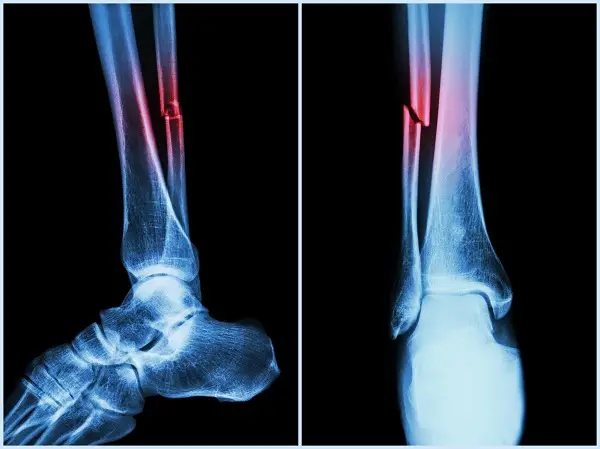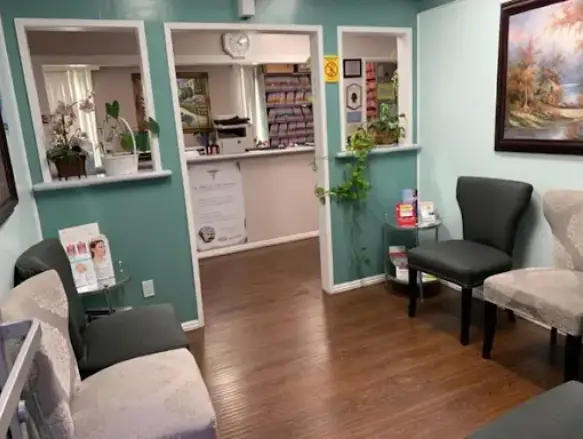Fracture Bone
Get In Touch
Call Now
Monday to Friday
9:00 AM To 6:00 PM
Saturday and Sunday
Closed

What is a Fracture Bone?
A fracture, also called a broken bone, is a medical condition in which the bone is damaged and breaks. Fractures happen when a bone is put under too much stress, such as from a fall, a car accident, or a sports injury. Fractures can also happen from diseases like osteoporosis, which weakens the bones.
Symptoms of a Fractured Bone
The symptoms of a fractured bone can vary depending on the severity of the fracture. Some common symptoms of a fractured bone include:
- Pain: Pain is the most common symptom of a fractured bone. The pain may be sharp, dull, or throbbing.
- Swelling: Swelling is another common symptom of a fractured bone. The swelling may be localized to the area of the fracture or it may be more widespread.
- Bruising: Bruising is another common symptom of a fractured bone. The bruising may be mild or it may be severe.
- Deformity: Deformity is a less common symptom of a fractured bone. It occurs when the bone is displaced from its normal position.
- Loss of function: Loss of function is a less common symptom of a fractured bone. It occurs when the bone is unable to support weight or move properly.
Causes of a Fractured Bone
The causes of a fractured bone can vary depending on the type of the fracture. Some common causes of fractures include:
- Trauma: Trauma is the most common cause of fractures. This can include falls, car accidents, sports injuries, and other accidents.
- Osteoporosis: Osteoporosis is a condition that causes bones to become weak and brittle. This makes them more likely to fracture.
- Metabolic bone disease: Metabolic bone diseases are conditions that affect the way the body metabolizes bone. This can lead to weak bones that are more likely to fracture.
- Tumors: Tumors can weaken bones and make them more likely to fracture.
- Infections: Infections can weaken bones and make them more likely to fracture.
Treatments for a Fractured Bone
The treatment for a fractured bone will vary depending on the severity of the fracture. Some common treatments for fractures include:
- Rest: Rest is the most important treatment for a fractured bone. This allows the bone to heal properly.
- Immobilization: Immobilization is the process of keeping the bone in place to heal properly. This can be done with a cast, splint, or brace.
- Pain medication: Pain medication can be used to relieve pain and inflammation.
- Surgery: Surgery may be necessary in some cases, such as when the bone is displaced or when its a compound fracture.
When to Seek Medical Help
If you think you have a fractured bone, it is important to seek medical attention as soon as possible. This will help to ensure that the bone healed properly and you do not develop any complications.
Prevention of Fractures
There are several things you can do to help prevent fractures, including:
- Maintain a healthy weight: Being overweight or obese can increase your risk of fractures.
- Get regular exercise: Exercise can help to strengthen your bones and make them less likely to fracture.
- Eat a healthy diet: A healthy diet rich in calcium and vitamin D can help to keep your bones strong.
- Avoid smoking: Smoking can weaken your bones and make you more likely to fracture.
- Take medications as prescribed: If you have a medical condition that increases your risk of fractures, such as osteoporosis, be sure to take your medications as prescribed.
Diagnosis of a Fractured Bone
Your doctor will likely ask you about your medical history and your symptoms. They will then perform a physical exam of the injured area. During the physical exam, your doctor may check your range of motion, strength, and reflexes. They may also press on different areas of the injured part to see if it is causing pain or not.
If your doctor suspects that you have a fractured bone, they may order additional tests,
What Patients Say
Our Testimonials
Why patients trust Dr. Farah with their health

Came in with a headache and started to feel sick. Had a big trip for New Years, therefore I had to solve my problems quickly. Dr. Farah helped me right away and treated all my problems, he saved my weekend. Will come here again soon.
Melanie Warner

I was in a lot of pain and I walked in and the receptionist was so lovely. I was into see the doctor within five minutes and he listened to me and was wonderful. I’ve been to a few urgent cares and this one by far is the best !
Tiffany Lee-Frank

I absolutely love Dr Farah and his whole staff on the medical and the spa side. I’m not just saying this, Dr Farah has been my doctor over 10 years and I’ve been using his Rejuvenate spa for about 4 years now. I would give them 10 stars if I could!!!
Lori Brooks

Ashley and Anna are friendly and made me feel welcome and at ease. Dr. Farah was very understanding and answered all my stupid questions. They were all very professional and patient with me.
juli ross
Providing Urgent Care for non-life-threatening health complications

Urgent care services
Monday to Friday
9:00 AM To 6:00 PM
Saturday and Sunday
Closed
17130 Ventura Boulevard,
Encino California 91316






